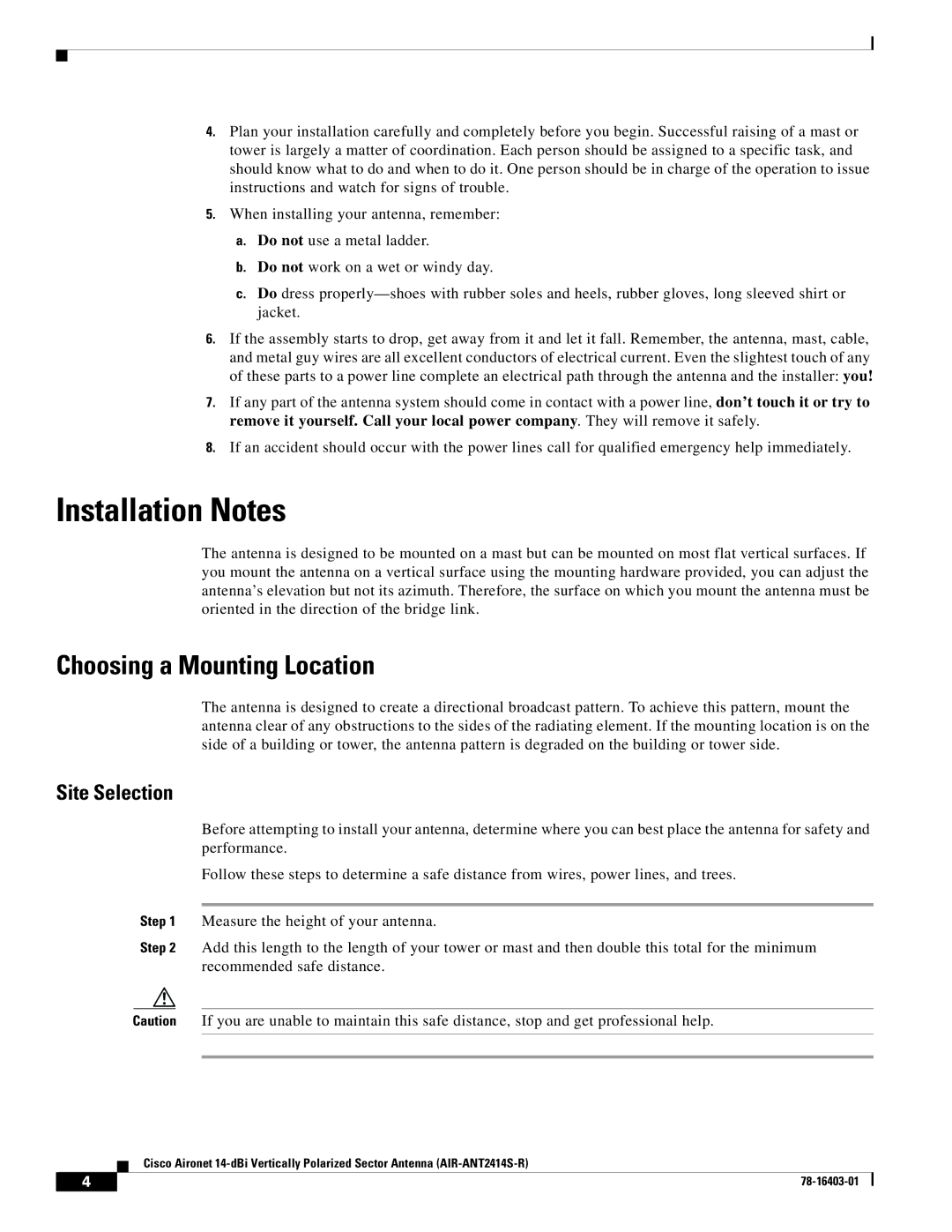
4.Plan your installation carefully and completely before you begin. Successful raising of a mast or tower is largely a matter of coordination. Each person should be assigned to a specific task, and should know what to do and when to do it. One person should be in charge of the operation to issue instructions and watch for signs of trouble.
5.When installing your antenna, remember:
a.Do not use a metal ladder.
b.Do not work on a wet or windy day.
c.Do dress
6.If the assembly starts to drop, get away from it and let it fall. Remember, the antenna, mast, cable, and metal guy wires are all excellent conductors of electrical current. Even the slightest touch of any of these parts to a power line complete an electrical path through the antenna and the installer: you!
7.If any part of the antenna system should come in contact with a power line, don’t touch it or try to remove it yourself. Call your local power company. They will remove it safely.
8.If an accident should occur with the power lines call for qualified emergency help immediately.
Installation Notes
The antenna is designed to be mounted on a mast but can be mounted on most flat vertical surfaces. If you mount the antenna on a vertical surface using the mounting hardware provided, you can adjust the antenna’s elevation but not its azimuth. Therefore, the surface on which you mount the antenna must be oriented in the direction of the bridge link.
Choosing a Mounting Location
The antenna is designed to create a directional broadcast pattern. To achieve this pattern, mount the antenna clear of any obstructions to the sides of the radiating element. If the mounting location is on the side of a building or tower, the antenna pattern is degraded on the building or tower side.
Site Selection
Before attempting to install your antenna, determine where you can best place the antenna for safety and performance.
Follow these steps to determine a safe distance from wires, power lines, and trees.
Step 1 Measure the height of your antenna.
Step 2 Add this length to the length of your tower or mast and then double this total for the minimum recommended safe distance.
Caution If you are unable to maintain this safe distance, stop and get professional help.
Cisco Aironet
4 |
| |
|
